December 30, 2018
There’s an arch book I read to my kids sometimes that starts out like this:
A long time ago, was a man named Noah
Who loved and worshiped God.
This faithful man followed God’s commands
Even when they seemed quite odd!
That last line used to bother me a bit. “God’s commands aren’t odd. They’re good and right and true! It’s we, who are odd!” Yet, to this world God’s commands are quite odd. Scripture says as much, even more in 1 Corinthians 1, “For since, in the wisdom of God, the world did not know God through wisdom, it pleased God through the folly of what we preach to save those who believe.” (1:21) To this wise world, God’s word is foolishness. And it follows that those who hold to God’s word also seem quite odd.
Simeon was such an odd man. What’s on your bucket list? What do you want to see before you die? Perhaps one of the myriad of historical wonders in Europe? Your granddaughter walking down the aisle? What’s on Simeon’s bucket list? A poor child among many entering the temple in Jerusalem. And we know Jesus’ parents were poor, because they offered a couple pigeons when the Law of Moses actually said, “And when the days of her purifying are completed... she shall bring to the priest … a lamb a year old for a burnt offering, and a pigeon or a turtle dove for a sin offering, … And if she cannot afford a lamb, then she shall take two turtledoves or two pigeons, one for a burnt offering and the other for a sin offering.” (Lev. 12:6-8).
So, Simeon goes up to this young family, who can’t even afford to buy a lamb, and takes their child in his arms and declares to God that he is ready to die! “Lord, now you are letting your servant depart in peace, according to your word.” This is odd behavior. For a man waiting for the consolation of Israel, you would expect him to wait for a king with as much splendor as King Solomon, who offered 22,000 oxen and 120,000 sheep at the dedication of the temple. (1 Kings 8:63)
Yet, because he believes what the Holy Spirit has revealed to him, Simeon believes this poor child to be him, who is greater than Solomon and the temple. He believes this child to be the shoot coming forth from the stump of Jesse, that charred stump, which was once a glorious tree, which bore mighty kings like David and Solomon but was cut down and burned on account of its own idolatry and foolishness. Now, from that stump blooms a rose foretold by Isaiah the prophet. To the world, this is nothing to rejoice at. But to him, who trusts in God’s Word, this child gives the strength to die in peace.
Simeon tells God that he has seen his salvation that he has prepared in the presence of all people. This infant brings salvation. Not as King David did with the sword. No, this child will do what those thousands and millions of oxen and sheep failed to do, even as their blood covered the altar of God. He will bring salvation from sin, death, and eternal condemnation by means of his own blood. And he will do this not only for Israel, but for all people, the Gentiles along with the Jews, as Isaiah prophesied, “And in that day will come the root of Jesse, even the one who stands to rule the nations, in him the nations will hope.” (Isaiah 11:10 LXX) This Christ-child will not bring forty years of peace within the borders of Israel, but eternal peace for the heavenly Jerusalem, which will be made up of people from every nation.
But this again is foolishness to the world. You can’t win by dying. The idea that Jesus’ shed blood could purchase anything, let alone the forgiveness of all sins, is ludicrous. It was ludicrous back when Simeon believed it and it is ludicrous now. Today most find it offensive that God would even demand justice for sins or dare to punish transgressors. If God were really just, he would accept us as we are. And the idea that God would demand that his Son die for our transgressions is abhorrent to the wise, who believe we have evolved passed the notion of gods, who demand sacrifice.
So, the stone which the builders rejected continues to be rejected by the world even after it has been established as the cornerstone of the Christian Church. The Gospel of Jesus Christ is opposed by nearly everyone. Preaching against sin is out of touch. Repentance is archaic. The cross of Christ is grotesque. The belief in the real, historical virgin birth and resurrection of Christ from the dead is naïve. And we who, who believe and preach this are strange, odd people.
Simeon told Mary that a sword would pierce through her own soul as well. This certainly happened when the virgin mother knelt before her dying son as he hung nailed to the cross breathing his last breaths, as any mother would hate to imagine. Yet, Mary also represents the church. And a sword continues to pierce through the church as long as she is called the church militant. Those, who worship Christ will be persecuted just as Christ was. The world that hated Christ still hates those, who follow him. Those who set themselves above Christ will set themselves above his Christians, even many who will claim to sit in the very seat of Christ.
Yet, those who exalt themselves will fall and those who humble themselves will be exalted. This is what it means to be a Christian. Christians don’t exalt themselves. Jesus exalts Christians. Christians receive by grace, as a gift, through faith. This means that we humbly receive what we do not deserve. This is not the way to become great in this world. But we Christians do not seek to be great in this world. We seek to receive a greater inheritance than this world could ever give. So, we repent of our sins when the world tells us to hold our heads up high. We glory in our sufferings with our hopes set on things that are not visible. We trust in a foolish Gospel while smart people call us dumb. That is the life of odd people, who follow odd commands.
Anna also was an odd lady. She worshipped God with fasting and praying night and day in the temple. No, she didn’t just go to the Christmas Eve Service and come back again the next morning for the Christmas Day Service. She deprived herself of food. People might look at you funny if you say you’re a vegetarian or that you’re going gluten free. This lady didn’t eat, so that she could train herself to focus more on her Lord and his word. She prayed at all times, with the congregation, at the sacrifices, by herself. She was constantly listening to the word of God and going to smell the sweet incense offered in the temple. She was what many these days would call, “a little too religious.”
Anna was a strange old lady. Even back then people probably thought she was weird. But she didn’t care. Like Simeon, she too had her hopes set on much more important things. When the Lord revealed to her who the baby Jesus was, she thanked God with all her heart and began speaking about him to all who were waiting the redemption of Jerusalem. This child, who would purchase the heavenly Jerusalem with his precious blood on the cross, gave Anna more joy than an earth full of gold.
What Anna does in our lesson is what any Christian woman should do. She tells anyone who will listen about Jesus. This is what mothers should do to their children (in fact it is their greatest duty and privilege). This is what wives should to their husbands, ladies to their boyfriends and girlfriends. In fact, this is what all Christians should do. We should talk about Jesus at every opportunity, when we sit in our houses, when we walk on our way, when we lie down and rise, Jesus should be on our heart and tongue.
Like the Virgin Mary, Anna represents the holy Christian Church. Christ’s church talks about Jesus even if people think she’s weird for doing it. And she proclaims teachings about Jesus that have gone out of style, like repentance and forgiveness, the atoning blood of Jesus, that Baptism saves and the Lord’s Supper is Christ’s true body and blood, and even that only men can be pastors.
Simeon and Anna were quite odd. They were odd because they followed God’s odd teaching. And if you will believe what God teaches, you are going to seem quite odd as well. Don’t let that bother you. Rather, embrace it. There is nothing that this world can give you that is more precious than the strange Gospel of Jesus Christ. The Gospel gives you something that human intelligence cannot possibly reach, but can be received through faith by even a simple child.
We are not afraid of seeming odd. That is why we borrow the words of Simeon every Sunday, just as we borrow the hymn of the angels when we sing glory to God in the highest. After receiving the Sacrament, we sing with Simeon, “Lord, now lettest Thou Thy servant, depart in peace, according to Thy Word. For mine eyes have seen Thy salvation, which Thou hast prepared before the face of all people.” In other words, we are saying that we are ready to die. We’ve checked off the most important thing on our bucket list. We have certainty of salvation. To the wise this is madness that after eating some tasteless bread and taking a sip of wine, we declare our readiness to depart this earth. Yet, like Simeon holding the plain baby in his arms, we know that we have seen our salvation, and we have indeed tasted it. Although our eyes don’t tell us this, we believe that we are receiving the body and blood of him who was born of a woman, born under the law to redeem those who are under the law; the same body that Simeon held in his arms and which hung on the cross. And by receiving this in faith, we truly receive our salvation. God’s words are more trustworthy than our senses. Let us prepare our hearts then to receive his salvation that we all might depart this life in peace. Amen.
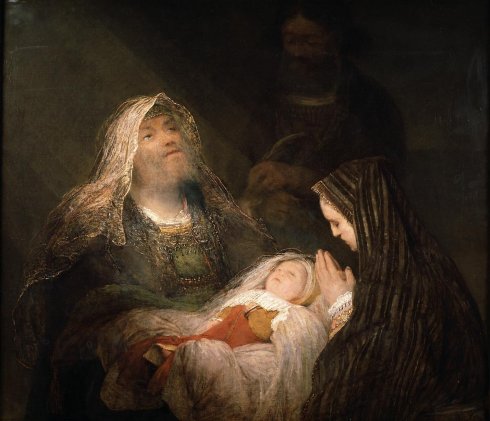
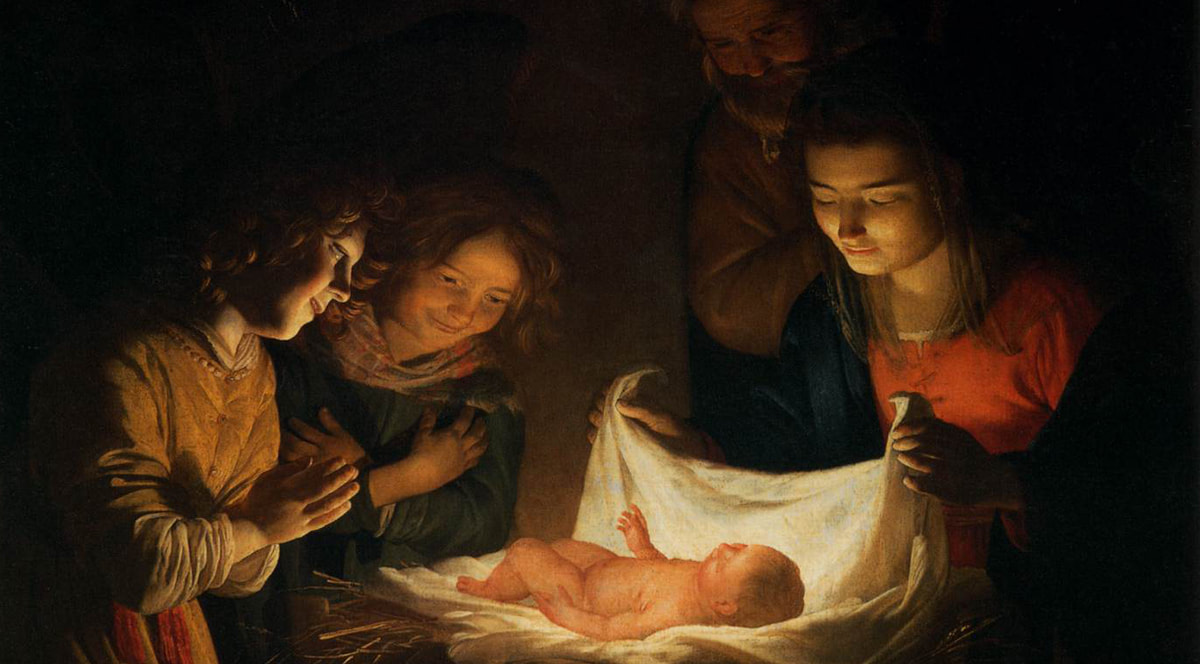
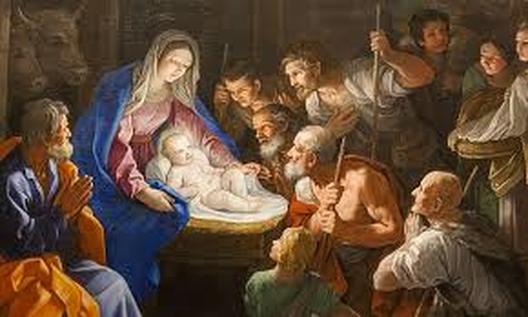
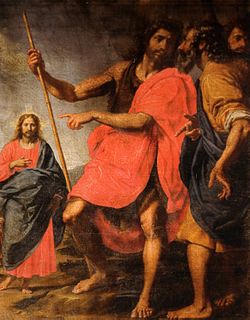
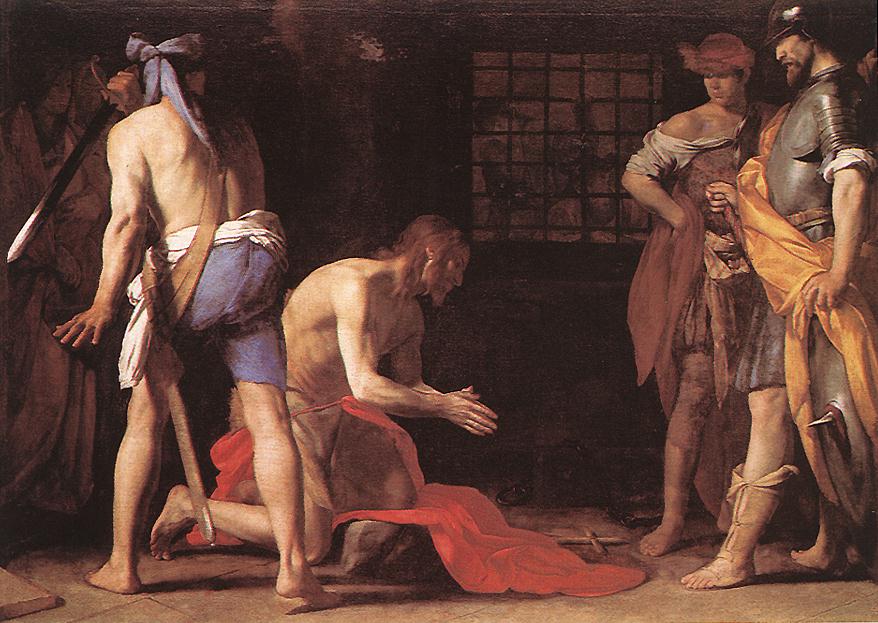
 RSS Feed
RSS Feed